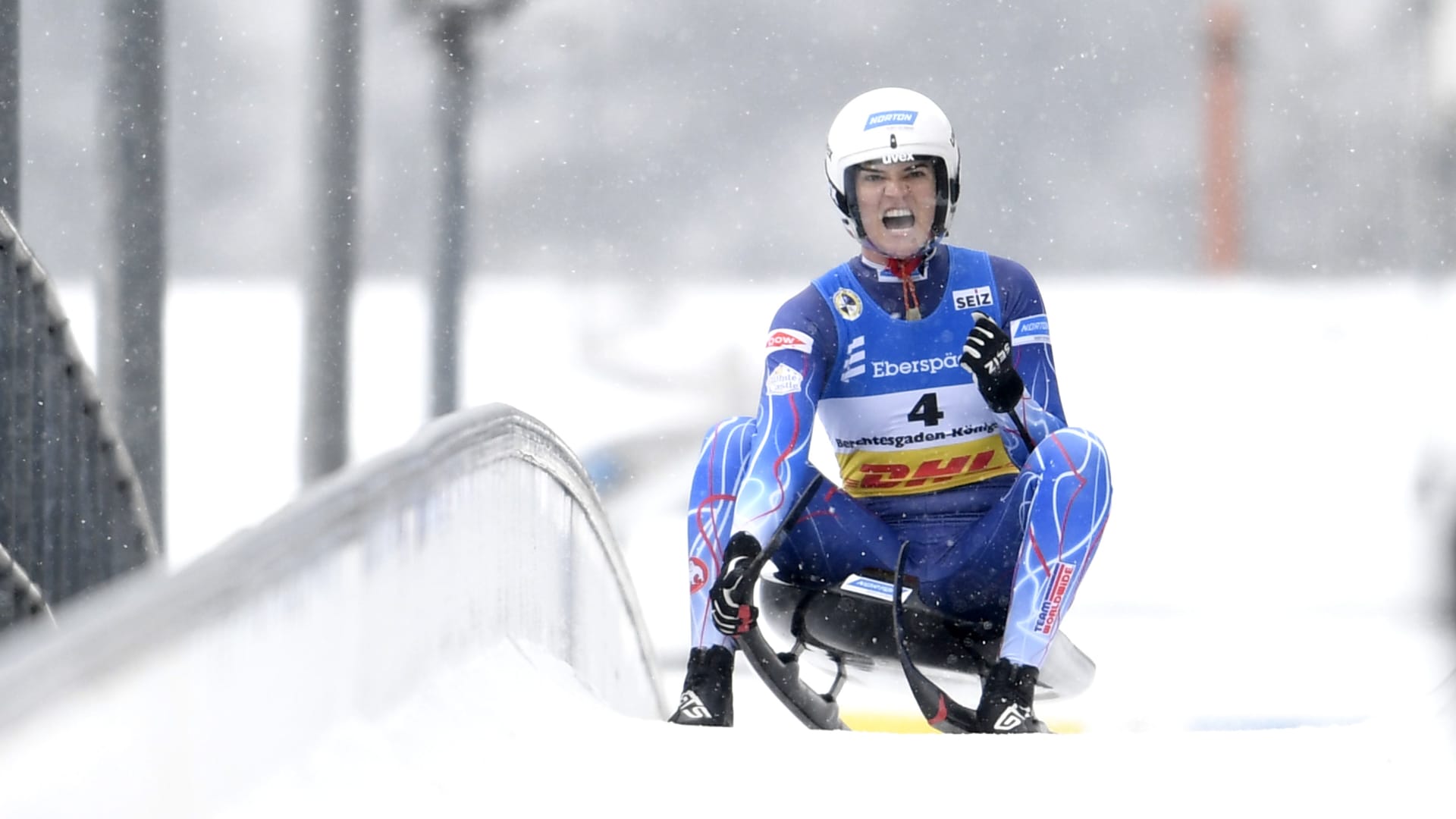
Much like training to be an Olympic athlete, starting a successful business or side hustle can take a tremendous amount of time, effort and patience to overcome the massive odds stacked against you.
Roughly two-thirds of small businesses don't make it past two years, and only half of businesses last longer than five years, according to the Small Business Administration. With odds like those, you might even start to consider finding a new dream altogether.
If anyone can relate to that struggle, it's the 3,000-plus athletes about to participate in the 2022 Winter Olympics and Paralympics in Beijing. Nearly every athlete dreams of winning Olympic gold, but only a relatively select few actually get that chance. Those who have made it to Beijing this year have likely endured years of training, and probably more than a few setbacks, to reach the pinnacle of their respective sports.
Here's some advice from four athletes set to compete in Beijing, on how to keep chasing your dreams of "making it," no matter what.
Get Tri-state area news and weather forecasts to your inbox. Sign up for NBC New York newsletters.
Snowboarder Mike Schultz: Learn and adapt

Mike Schultz, 40, is competing in his second Paralympics with the U.S. snowboarding team after winning one gold and one silver medal at the PyeongChang 2018 Paralympic Winter Games.
Money Report
A snowmobile accident in 2008 left Schultz with severe compound fractures to his knee. After multiple surgeries, his left leg was amputated above the knee.
To Schultz, the Paralympics offer the perfect example of how you don't have to let a setback prevent you from reaching your dreams.
"So many times in life, we're hit with things that are unexpected and they truly challenge us in different ways," Schultz says. "The one thing that's so incredible about the Paralympics is watching how the athletes adapt to different situations and continue to chase their goals."
His advice for when you hit a bump in the road: Make the best of your situation and learn from your setbacks instead of letting them sap your resolve.
"When you get kicked or beat down, instead of being upset about it, you just take a step back [to] process…" he says. "Can I make anything good come out of [this situation]?"
And Schultz knows as well as anyone how that lesson can apply to entrepreneurs – because he is one. In 2010, he launched BioDapt, a company that makes sports prosthetics used by Schultz himself, as well as more than 20 competitors in PyeongChang in 2018.
"In my case, I was able to build a company…and create some really kick-butt equipment that not only helps myself become better, but also a lot of other people around the world," he says.
Ice hockey forward Hilary Knight: 'Going out there and carving a future'

Hilary Knight, 32, is a four-time Olympian and a three-time Olympic medalist for the U.S. ice hockey team. She won gold for the U.S. in 2018 after taking home silver medals in 2014 and 2010.
On top of Olympic success, Knight is no stranger to tackling tough issues. She frequently speaks out on the importance of a healthy body image for women and the need for equal pay for female athletes.
Much like hockey and advocacy, Knight says that starting a business is "one of those things where you have to keep getting up more times than you get knocked down."
"I know that's super cliché, but that's what entrepreneurism is. Taking a risk and seeing a need for something and going out there and carving a future," Knight says.
Sled hockey forward Rico Roman: 'Sometimes you've got to fail'

Rico Roman, 40, is going to Beijing aiming for a third-straight gold medal with the U.S. sled hockey team at the 2022 Paralympics.
In 2007, Roman had his left leg amputated above the knee after being injured by an explosion while serving in the U.S. Army in Iraq. He took up sled hockey in 2008 and says that missing the cut for the 2010 Paralympic team provided all the motivation he needed to dedicate himself to becoming one of the sport's best.
"Sometimes you've just got to fail. I mean, sometimes you've got to be told 'no' a bunch of times to really know if you want it," Roman says. "At least, that's what worked for me."
Two gold medals later – and counting – Roman adds that visualizing your success is the key to overcoming obstacles that get between you and your dream.
"Constantly tell yourself: 'It'll happen. You will do it. You're gonna make it happen,'" he says. "You gotta tell yourself those things a lot – almost like you're brainwashing yourself into knowing you're going to do it. And then put in the hard work to do it; and then it happens."
Luger Summer Britcher: Do it for 'the right reasons'

Summer Britcher, 27, is a three-time Olympic athlete for the U.S. luge team. The record holder for the most world cup singles-race wins in Team USA luge history, Britcher says that you're the best judge of your own success. Being confident that you're on the right path is the best way to ensure you stay committed to your goals, she says.
"I would say, we all get to choose how to define what 'making it' is. It's easy to not give up your dreams if you're doing things for the right reasons and you're on the right path for yourself," Britcher says.
Watch the Winter Olympics February 3-20 on NBC and Peacock.
Disclosure: CNBC Make It parent company NBCUniversal owns NBC Sports and NBC Olympics. NBC Olympics is the U.S. broadcast rights holder to all Summer and Winter Games through 2032.
Sign up now: Get smarter about your money and career with our weekly newsletter
Don't miss:
Why Olympic gold medalist Red Gerard always cheers for his opponents
How Olympic gold medalist Tara Lipinski stays motivated: 'I'm competitive'






